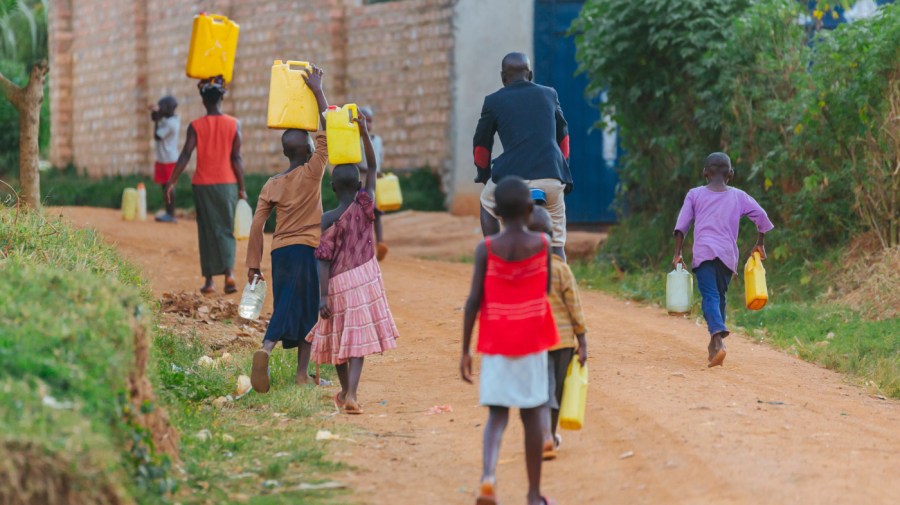
Government efficiency has come to Washington, D.C., and USAID needs a helping hand.
The Trump administration is dismantling the agency, which administers billions of dollars in aid to more than 100 countries. Much of that money — a $43 billion taxpayer-funded budget — is wasted. On average, only 43 percent of USAID’s awards achieved just half of their intended results. According to a 2024 U.S. Inspector General report, USAID consistently fails to perform due diligence on award funding.
Reassessing America’s role in the developing world is critical, and USAID’s shutdown is a key step in that process. But just scrapping USAID cannot be the final step. Leaving it at that would create a dangerous power vacuum on a continent like Africa, where U.S. foreign policy should put forth a viable alternative: mutually beneficial trade partnerships with African nations.
The U.S. could be Africa’s best partner. Yet China and Russia are increasingly seen by Africans as key players due to their assertive presence on the continent.
From solar and wind energy development in Sub-Saharan Africa to regular China-Africa trade summits, the Chinese Communist Party has made the continent a top priority for expanding its soft and hard power. Over the last 20 years, China has become Sub-Saharan Africa’s largest bilateral trading partner, with nearly 20 percent of the continent’s exports going to China — hundreds of billions of dollars in annual trade value. According to the 2024 African Youth Survey, 76 percent of young Africans view China as the world’s most influential power, with 82 percent seeing its influence as positive.
Then there is Russia. Vladimir Putin has offered African nations his “total support” in combating terrorism and extremism. Russians are now building spaceports in friendly African countries to expand access to rocket launch sites. Just last month, Putin signed a partnership agreement with the Central African Republic’s ruling party to “solidify” ties, with President Faustin-Archange Touadera praising Russians as “brave warriors.”
I am originally from Senegal and still do business in West Africa, so public sentiment in the region is intimately familiar. And, slowly but surely, Africans are growing fonder and fonder of Chinese and Russian entities that are seen as partners. Africans increasingly associate two of America’s top global adversaries — two stark symbols of authoritarianism — with cooperation and economic prosperity.
For decades, Africa has been a pawn in the foreign policy games of global powers. But Russia’s military support for leaders installed by coups and China’s infrastructure projects all fall short of addressing Africa’s real needs. Roads and hospitals mean little when food is scarce and healthcare remains unaffordable.
USAID has exacerbated dependency rather than fostering innovation. Likewise, despite being Sub-Saharan Africa’s largest trading partner, China’s influence has delayed necessary reforms by bailing out corrupt leaders and inefficient systems. The persistence of poverty and lack of economic growth speak volumes. These foreign relationships haven’t focused on what Africans need most — economic freedom.
Africa needs partners who recognize its people’s potential and support them to unleash it, not merely governments who benefit from short-term deals. Economic freedom — the ability to trade, innovate and build wealth — has historically lifted billions out of poverty. Two centuries ago, 90 percent of people worldwide lived in extreme poverty. Today, that number has dropped to less than 10 percent, thanks to the emergence of free markets.
Unfortunately, African nations have been laggards in terms of increasing economic freedom, with the exceptions of Mauritius and Rwanda.
The stakes are high. In 2050, more than one in four people will be African — up from one in 11 in 1960. There will be more people living in Nigeria than the U.S., and over 2.5 billion on the entire continent.
If hundreds of millions of Africans grow up with fond views of the Chinese Communist Party or Putin’s brand of strongman politics, how can free-market democracy hope to compete? Those who condemn U.S. capitalism will inevitably spread their own worldviews to impressionable African hearts and minds that are already being won over. The U.S. is losing an ideological battle without even realizing the importance of winning it, and despite championing the moral high ground with concepts like individual liberty, free speech, entrepreneurship, rule of law and property rights.
Current trends will have a profound impact on African prosperity, and America’s role in it. The U.S. could be celebrated as an ally in supporting African prosperity by supporting entrepreneurial capitalism in Africa, even as it defunds anti-capitalist non-governmental organizations.
Any failure to prioritize African trade would be a colossal mistake, leaving the continent little choice but to turn to American adversaries. Africans need partners, not patrons.
So where does America stand?
Author of “The Heart of a Cheetah,” Magatte Wade is a Senegalese entrepreneur, African prosperity activist, senior fellow at Atlas Network, and co-founder of Prospera Africa.












